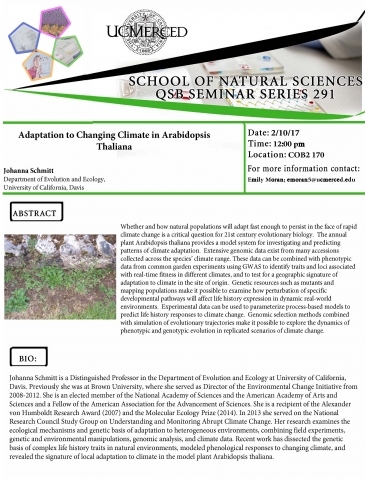Johanna Schmitt, University of California, Davis
Abstract:
Whether and how natural populations will adapt fast enough to persist in the face of rapid climate change is a critical question for 21st century evolutionary biology. The annual plant Arabidopsis thaliana provides a model system for investigating and predicting patterns of climate adaptation. Extensive genomic data exist from many accessions collected across the species’ climate range. These data can be combined with phenotypic data from common garden experiments using GWAS to identify traits and loci associated with real-time fitness in different climates, and to test for a geographic signature of adaptation to climate in the site of origin. Genetic resources such as mutants and mapping populations make it possible to examine how perturbation of specific developmental pathways will affect life history expression in dynamic real-world environments. Experimental data can be used to parameterize process-based models to predict life history responses to climate change. Genomic selection methods combined with simulation of evolutionary trajectories make it possible to explore the dynamics of phenotypic and genotypic evolution in replicated scenarios of climate change.




